Sheideh Homayon
Quarantine Deceiving Yelp's Users by Detecting Unreliable Rating Reviews
Apr 21, 2020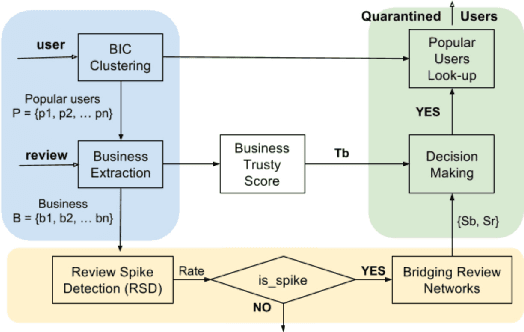
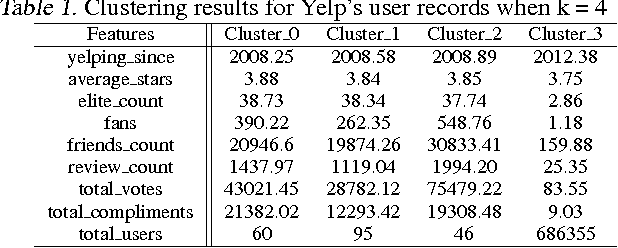
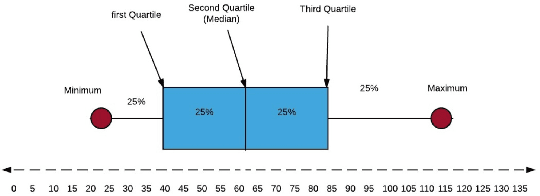
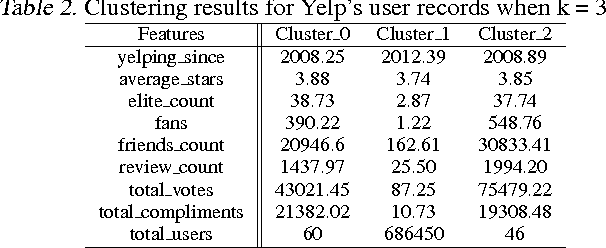
Abstract:Online reviews have become a valuable and significant resource, for not only consumers but companies, in decision making. In the absence of a trusted system, highly popular and trustworthy internet users will be assumed as members of the trusted circle. In this paper, we describe our focus on quarantining deceiving Yelp's users that employ both review spike detection (RSD) algorithm and spam detection technique in bridging review networks (BRN), on extracted key features. We found that more than 80% of Yelp's accounts are unreliable, and more than 80% of highly-rated businesses are subject to spamming.
Harvesting Creative Templates for Generating Stylistically Varied Restaurant Reviews
Sep 15, 2017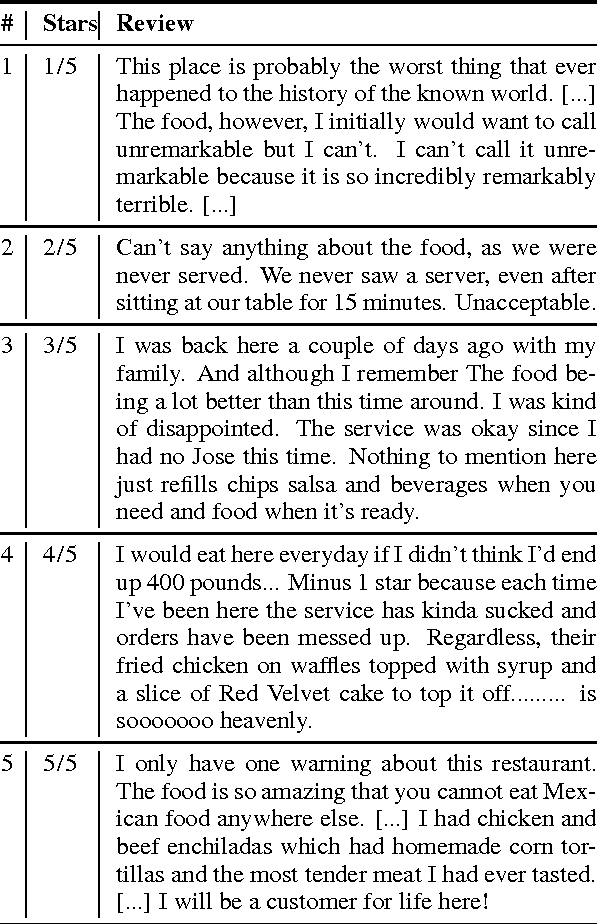
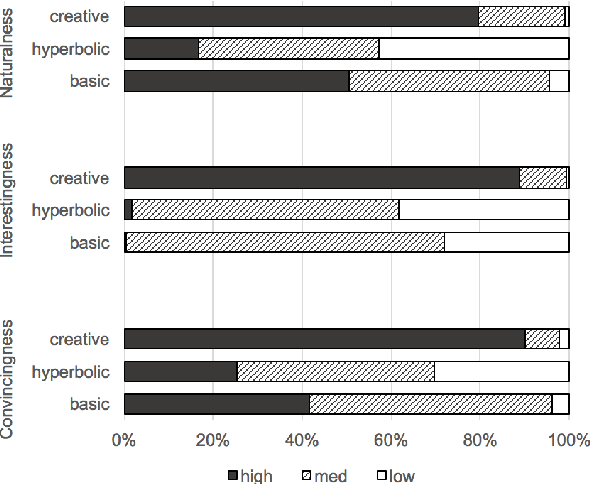
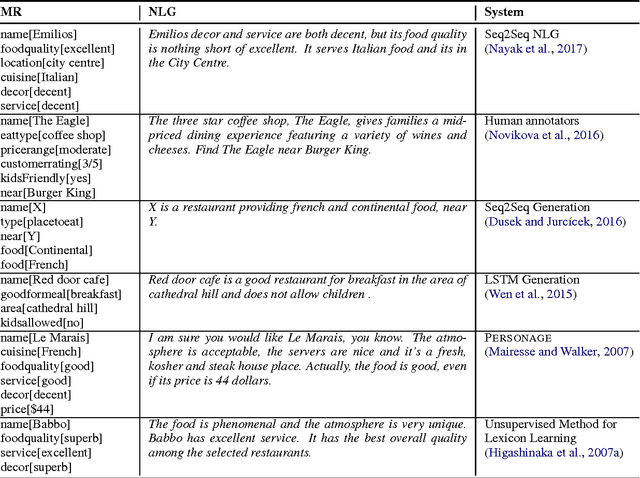
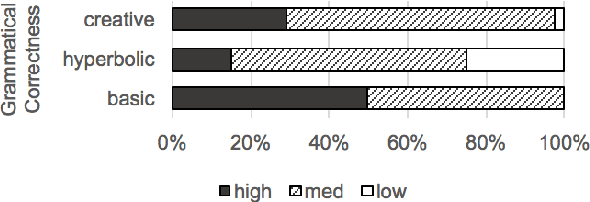
Abstract:Many of the creative and figurative elements that make language exciting are lost in translation in current natural language generation engines. In this paper, we explore a method to harvest templates from positive and negative reviews in the restaurant domain, with the goal of vastly expanding the types of stylistic variation available to the natural language generator. We learn hyperbolic adjective patterns that are representative of the strongly-valenced expressive language commonly used in either positive or negative reviews. We then identify and delexicalize entities, and use heuristics to extract generation templates from review sentences. We evaluate the learned templates against more traditional review templates, using subjective measures of "convincingness", "interestingness", and "naturalness". Our results show that the learned templates score highly on these measures. Finally, we analyze the linguistic categories that characterize the learned positive and negative templates. We plan to use the learned templates to improve the conversational style of dialogue systems in the restaurant domain.
 Add to Chrome
Add to Chrome Add to Firefox
Add to Firefox Add to Edge
Add to Edge